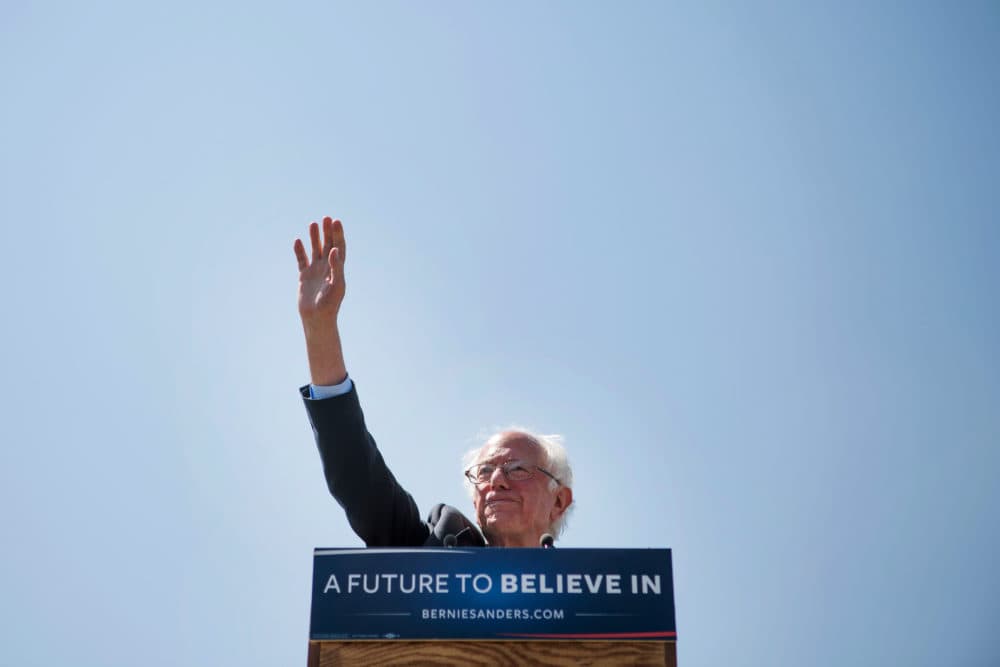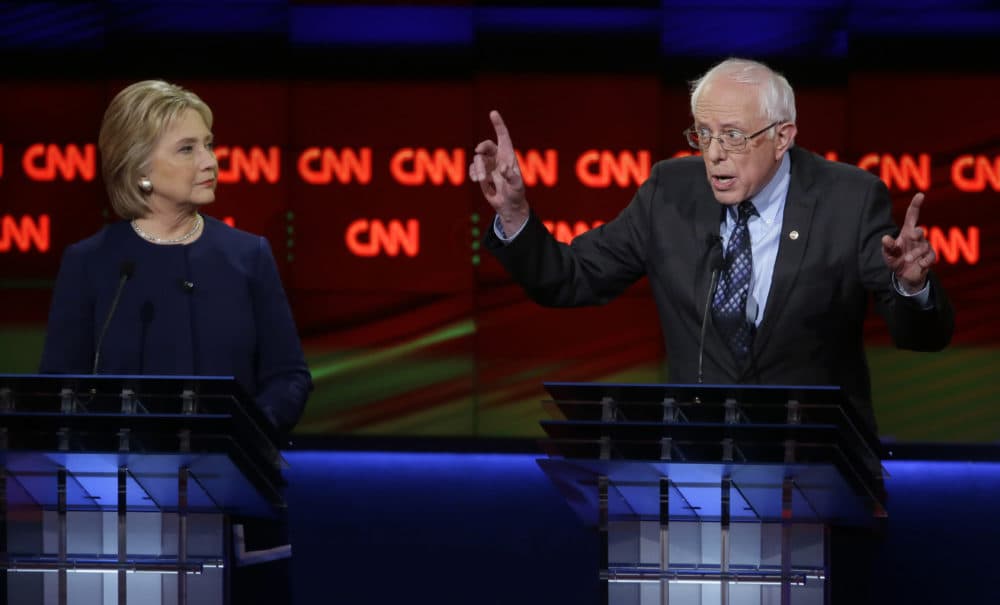Advertisement
Commentary
There's Only One Bernie Sanders

He’s running. After two years of speculation, Bernie Sanders has officially jumped into the 2020 race for the Democratic presidential nomination. The Vermont senator and leftist icon announced his candidacy in an email to supporters. Citing the “political revolution” that emerged from his 2016 insurgency against Hillary Clinton, Sanders emphasized the imperative of “moving the revolution forward” and electing “leadership that brings us together.”
The Sanders revolution, a grassroots movement for economic parity, had a profound effect on the Democratic Party. Bold left-wing policy ideas such as Medicare For All and the Green New Deal — ideas with the imagination and scope that Sanders championed on the campaign trail in 2016 — have bloomed into mainstream ideas that most of the 2020 Democrats have embraced.
It’s not hard to surmise why this happened.
Sanders challenged the Clinton campaign at a moment when Democratic Party leaders were reluctant to embrace populist policies, even as millions of Americans languished in poverty or teetered on the edge. Voters were hungry for the vision and hope that Sanders offered. What began as a protest campaign became a movement.

But today, as Sanders re-embarks on the trail for his second presidential bid, he’ll step into a more challenging landscape than the one he crisscrossed a few years ago. Not only will Sanders be cannon-balling into a much larger pool of diverse presidential candidates who’ve carried his ideas forward, but he’ll also re-engage with an electorate that cares passionately about an issue on which Sanders has sometimes been tone-deaf and insensitive: representation.
Sanders will make the case for his presidency after a midterm election that sent a record number of women and candidates of color to public office. And while it’s disingenuous to dismiss Sanders as “just another old white guy” — he actually did quite well with young voters of color in 2016 and he would be America’s first Jewish president — the criticism that Sanders' populism often felt identity-blind is no joke.
Progressive politicians including Ayanna Pressley and Alexandria Ocasio-Cortez (a former Sanders campaign organizer) have made a persuasive case that people with their backgrounds — who know firsthand what it's like to be marginalized by poverty's racist and gendered structures — should have a larger role in writing and advancing policy that would alleviate the problem for all. Because they've lived it or been close to it in ways that someone with a degree of white male privilege has not.
In a field where Elizabeth Warren has already suggested a 2 to 3 percent wealth tax on the ultra rich, where Kamala Harris flirted with abolishing private health insurance (before backpedaling), and where Andrew Yang is proposing universal basic income, Bernie Sanders will have to demonstrate why he’s still the best choice for progressives.
I can imagine Sanders 2020 soaring or crashing with equal bombast.
I voted for Sanders in the 2016 primary. As a Millennial, I appreciated his willingness to imagine a better future for all. Today, I can imagine Sanders 2020 soaring or crashing with equal bombast.
The case against his candidacy is simple: He’s already won the ideas war, and he should step aside and support a candidate who better represents the Democratic Party “base” which is younger, less male and multiracial. That’s a solid rationale that I would be remiss to brush off — especially as a white man who’s always felt represented in image, if not in policy.
But the case for Sanders 2020 stems from a presumption nestled within the “Bernie shouldn’t run” argument: the idea that Sanders’ policies and philosophies are naturally interchangeable with those held by one of the other 2020 candidates. Because the reality is that there’s no candidate quite like Sanders in the 2020 race right now.
None of the current 2020 contenders have been advocates for progressive populism as consistently as Sanders has. (My introduction to the guy was his excoriating 2010 filibuster against the extension of the Bush tax cuts.) Sanders has also distinguished himself from the 2020 pack by talking about foreign policy and why America should work with other countries to build an internationalist coalition to fight right-wing authoritarianism around the world — ironic given that he was dinged in 2016 for sidelining foreign policy issues.
... there’s no candidate quite like Sanders in the 2020 race right now.
But the sharpest differences between Sanders and the rest of the 2020 pool are philosophical.
Most of the Democrats — even Warren — are running on the premise that capitalism is broken and needs to be fixed. Sanders, on the other hand, contends that capitalism is working just as intended, and that the brutal structural poverty we’re suffering isn’t a bug, it’s a feature.
Then there’s the matter of how to achieve just policy. Sanders has always been a street-level politics kind of guy. He speaks the language of grassroots rabble-rousers, in which ordinary people are the engine behind policy-making. His 2020 competitors hail from a wonkier world where top-down politics hashed out between experts in private rooms is how things are usually done.
If Sanders can highlight these nuances — while atoning for his shortcomings in the 2016 race and demonstrating growth, as he’s doing with his emphasis on foreign policy — his 2020 campaign will likely be bigger and more successful than the last. His campaign raised $4 million in less than 24 hours after his 2020 announcement, which gels with his recent popularity ratings. It also suggests that outside the warring echo chambers of Twitter, a lot of folks are still open to a Bernie Sanders presidency.
But if within the next few months Sanders can’t fully evolve beyond his 2016 profile and expand his reach as the times require, then he shouldn't run. And that would be 100 percent OK with this former Sanders voter. It would be gesture consistent with Sanders' honesty, and his vision of a just future for all.
Because the candidate who leads the Democratic ticket in 2020 will never be able to realize that vision singlehandedly. All of us will have to nudge them every step of the way.
